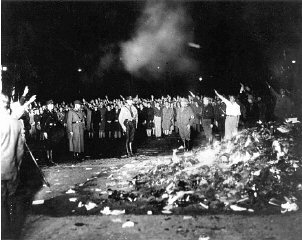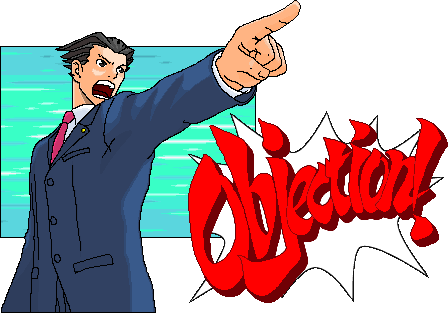‘Book Burnings’ and the History of Censorship
Introduction
This report
will cover information on ‘Book Burnings’ and the history of censorship both
worldwide and some Australian specific information. It will cover information
on historical book burning and censorship events, and takes a look into reasons
and types of acts throughout history.
‘Book Burnings’
History
Book Burning – What is
it?
Book burning
is the ritual of destroying books through fire. It is commonly attributed to a
cultural, religious or political opposition to the material contained within
the book.
Book Burning History –
Selective Timeline
Majority of
book burning rituals appear to have been conducted as a response to social
conflict. This has led to both sides to commit acts of violence against one
another, and in turn has attributed to the destruction of written works the
opposite party valued. Below is a list of some events that demonstrate book
burning throughout history.
525
B.C.E The Egyptian libraries are destroyed
by the Persians
12 B.C.E
Alexandria is burned. This is the
date on which Caesar is said to have
destroyed
the Great Library.
5th Century
554
The Emperor Yuan burns his library
1309
The Jewish libraries of Paris are burned
1841
The Library of Congress is burned by the British
1933
The Nazis burn books in Berlin, followed by several other sites
1981
The Jaffna Library in Sri Lanka is burned
2003
Fire, pillage and simple destruction claim almost all of the Iraqi libraries
following
the American ‘libervasion’.
 |
This is a photograph of the book burning in Opera Square, Berlin, Germany, 10 May 1933 |
Other ‘Book Burning’
Ceremonies
As discussed
there can be many reasons behind book burning, some other reasons I have
discovered include:
·
In 1939
Britain introduced the Ration Book, it was introduced because of the
difficulties importing food into Britain during the war. The Ration Book
(rationing) remained until 1954, where at midnight on 4 July, restrictions
relating to the Ration book was dissolved. Book Burning ceremonies were scheduled, out of
celebration of the book being dissolved.
 |
This is a photograph of a Ration Book |
·
On April
10, 2003 after rumours were in circulation that Saddam was gone, a crowd
gathered at the unprotected library. Overall
10 million documents were either looted, or burned. It was an attack of varying
proportion, rebels protesting alongside regime loyalists who were intent on
destroying evidence of Sadaams atrocities.
·
Terry
Jones a Pastor from Gainesville, Florida planned to burn copies of the Koran in
protest to an Islamic Centre being built in lower Manhattan near the September
11 memorial site.
 |
Terry Jones a Pastor from Gainesville, Florida. |
History of Censorship
Censorship of Books –
What is it?
Censorship of
books is the act of changing , suppressing or prohibiting writings which are
considered to be obscene, blasphemous or politically unacceptable. The banning
and suppression of books can vary from country to country, due to varying
social expectations.
Censorship History
(Selected Works)
Many books throughout history and
in current times are censored for various reasons. Some of these reasons may
seem acceptable to some, but of offence to others beliefs. It is a hard line to
make everyone happy when it comes to censorship. Below are some works that have
been suppressed throughout history.
Banned and suppressed based on social
grounds, was the Mark Twain novel The Adventures of Huckleberry Finn. This
novel was original published in London, 1884.
Banned and suppressed
based on political grounds, was the George Orwell novel, Animal Farm which was
originally published in England, 1945 and USA, 1946.
A book that was banned due to
sexual grounds, was Lolita written by Vladimir Nabokov and originally published
in France 1955, England 1959 and USA, 1958.
History of Censorship and Classification in Australia
Australia has always maintained a
standing on censorship, although throughout history their stand has been
changed and enhanced to keep with the changes in society. These include:
1901 - The Department of Trade and Customs received the
rights to prohibit the import of indecent, blasphemous or obscene works.
1967 - The National Literature Board of review was
established, they had the responsibility of reviewing books that they deemed
unsuitable for release in Australia.
1974 - The Commonwealth and all states except for
Queensland agreed that the Commonwealth would have the responsibility to
classify materials.
1983 - The Commonwealth developed the Classification of
Publications Ordinance 1983 (ACT)
1996 - The National Classification Scheme Commenced and
a Classification Review Board was developed.
Banned Books in Australia
Throughout Australian History
there have been many books that have succumbed to becoming banned in Australia.
These have included:
The Room by Hubert Selby (Novel)
- This novel was banned by the National Literature Board of Review on the 3rd
of October, 1972.
The Inheritors by Harold Robbins
(Novel) - The novel was banned by the national Literature Board of Review on
the 12th of August, 1970.
The Deal: A Novel by G. William Marshall
(Novel) - This novel was banned by the National Literature Board of Review on
the 16th of October, 1968.
Objections to Censorship
Throughout history, and in
current times there have been many objections to the reasoning’s of censoring
particular items. Some cases have included:
Crowe v
Graham and Others (1986) - The
authors of a publication of 2 magazines in Sydney, were found guilty of
breaching the New South
Wales Obscene and Indecent Publications Act 1901-1955. The publishers later
contested and after the case was heard, the High Court of Australia replaced,
the common law test of obscenity “tendency to deprave and corrupt”, with a
community standards test “whether materials offends against contemporary
community standards, or the modesty of the average man.” (Crowe v Graham (1968)).
This adjustment to Act related to all published materials, including books.
Luv Ya
Bunches by Lauren Myracle - Scholastic
a well known publisher of and distributor of children’s books in the world,
more recently had decided to censor the book Luv Ya Bunches in 2009, as it was
about a girl, with two mothers. Scholastic later overturned the decision after
a Gay Rights Petition by Change.org was
commenced against Scholastic.
 |
A childrens book which was planned to be banned by Scholastic. |
Banned Books Week
An event which has been
developed to take pride in the freedom of to read, was launched in 1982 in
response to a sudden surge in books being challenged by schools, bookstores and
libraries. The event is Banned Books Week and it is held in the last week of
September where libraries and bookstores draw attention to the problem of
censorship through displays and events.
Conclusion
Overall throughout history there
have been numerous reasons behind both book burning and the censorship of
books. These have ranged from personal opinion, social expectations and the
expectation of others in what they think is right or wrong. Through researching
this topic, it has highlighted that there is two sides to every case,
objection, burning and the decision to censor.
References:
Banned in Australia 2012, Australian Literature
Resource, viewed 29 April 2012, <
http://www.austlit.edu.au.ezproxy.lib.swin.edu.au/specialistDatasets/Banned>.
Lyons,
Martyn 2011, Books a living history,
Thames & Hudson, London.
Sova, DB
c1998, Banned books : literature
suppressed on sexual grounds, Facts on File, New York.
Karolides,
NJ c1998, Banned books : literature
suppressed on political grounds, Facts on File, New York.
Sova, DB
c1998, Banned books : literature
suppressed on social grounds, Facts on File, New York.
Portland Community College 2012,
Banned books, Portland Community College
Library, viewed 2 April 2012,
<http://www.pcc.edu/library/news/banned_books.html>.
Banned Books Week 2011, Banned Books Week, viewed 3 April 2012,
<http://www.bannedbooksweek.org/>.
GottesmanLibraries 2009, Banned Books Week 2009, 11 August,
viewed 4 April 2012.
<http://www.youtube.com/watch?v=4zZBqIcnU2k&list=UUDtMYyZDE9ltWIWXyY0XYXQ&index=2&feature=plcp>.
Baez F
C2008, A universal history of the
destruction of books : from Ancient Sumer to Modern Iraq, Atlas & Co,
New York.
BBC News
2012, 1954 : Housewives celebrate end of rationing, BBC On this day 1950-2005, viewed 21 April 2012,
<http://news.bbc.co.uk/onthisday/hi/dates/stories/july/4/newsid_3818000/3818563.stm>.
Levitz, J
2010, Terry Jones’s Koran Fire protest
plan burns out, The Australian, viewed 21 April 2012, <http://www.theaustralian.com.au/news/world/terry-joness-koran-fire-protest-plan-burns-out/story-e6frg6so-1225918479142>.
1954
'Bonfire for ration books', The Canberra Times (ACT : 1926 - 1954), 11
March, p. 2, Trove, viewed 21 April, 2012,
<http://nla.gov.au/nla.news-article2911502>.
Knuth, R 2006, Burning books and levelling libraries :
extremist violence and cultural destruction, Praeger Publishers, Westport.
Banned in Australia 2012, Australian Literature
Resource, viewed 29 April 2012, <
http://www.austlit.edu.au.ezproxy.lib.swin.edu.au/specialistDatasets/Banned>.
History of censorship and classification in
Australia 2012,
Parliament of Australia, viewed 29 April 2012, <
http://www.aph.gov.au/Parliamentary_Business/Committees/Senate_Committees?url=legcon_ctte/classification_board/report/c02.htm>.
Fox, R.G
1969, Obscenity and indecency :
Interpretation of the Obscene and Indecent Publications Act 1901 – 1955
(N.S.W.), Adelaide Digital Library, viewed 06 May 2012,
<http://digital.library.adelaide.edu.au/dspace/bitstream/2440/24769/1/alr_V3n3_1969_FoxObsCaseComm.pdf>.
Change.org
2009, Tell Scholastic to stop censoring gay friendly books, Change.org, viewed
06 May 2012,
<http://www.change.org/petitions/tell-scholastic-to-stop-censoring-gay-friendly-books>.
